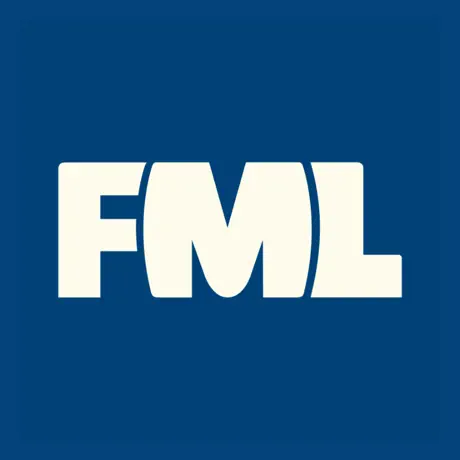By BrokeAF - 20/07/2017 05:01
Similar FMLs
By iblamethetories - 11/10/2012 17:49 - United Kingdom - Colchester
By joanikens - 14/11/2016 07:20
Coinbased
By Keekee - 19/01/2023 14:00
By quarterback - 23/01/2011 05:43 - United States
By WhoopteeDooDoo - 12/10/2011 22:47 - United States
By fuckedbyretail - 02/02/2013 14:53 - United States - Charlotte
By Anonymous - 25/02/2013 08:39 - Canada - Saskatoon
By Chels - 04/12/2009 06:27 - United States
By ihatebeingacashier - 11/07/2016 21:06
By Anonymous - 14/09/2011 15:47 - United States
TOP COMMENTS
Comments
if op was too broke to have dollars then they are assuming they're too broke to sue
Only the government has to accept them. A business is more than within their rights to no do so. OP, that sucks but find a coin star next time. Paying in change is a huge hassle for a cashier.
No, they don't. A merchant can refuse sale for any reason. If you have to pay before you pump the gas, they can refuse. Legal tender must be accepted for debts. As they haven't given you any product, there is no debt. A merchant is only forced to take legal tender if a debt is there, say by letting them pump gas first.
This doesn't list a location so I dunno about wherever this was posted from, but not necessarily. Where I am coins are only legal tender up to certain amounts. I don't remember the amounts for sure but I think the general rule of thumb is that if it's enough to be rolled it's too much (even then, it doesn't say they're legal tender if rolled, they're simply not legal tender over certain amounts). A roll of quarters is 10 dollars, the cashier would have been able to refuse (if such rules exist where this happened). Most people don't seem to know about this act, but it definitely does exist. I probably would have take the 10 dollars anyway, personally. That's really not that bad. I mean, it can be if everybody wants to pay 10 dollars in quarters you will very quickly be swimming in them, running out of space in your drawer, and counting them all at the end of the day would be torture. But that chances more than one person is going to do so are pretty slim. Quarters can disappear pretty fast too, so I don't mind having lots available.
Oh, this stupid myth strikes again... No, stores don't have to take coins. Stores don't have to take any money at all. You can look this up on the Treasury's web site.
From the US Treasury website: "The pertinent portion of law that applies to your question is the Coinage Act of 1965, specifically Section 31 U.S.C. 5103, entitled "Legal tender," which states: "United States coins and currency (including Federal reserve notes and circulating notes of Federal reserve banks and national banks) are legal tender for all debts, public charges, taxes, and dues." "This statute means that all United States money as identified above are a valid and legal offer of payment for debts when tendered to a creditor. There is, however, no Federal statute mandating that a private business, a person or an organization must accept currency or coins as for payment for goods and/or services. Private businesses are free to develop their own policies on whether or not to accept cash unless there is a State law which says otherwise. For example, a bus line may prohibit payment of fares in pennies or dollar bills. In addition, movie theaters, convenience stores and gas stations may refuse to accept large denomination currency (usually notes above $20) as a matter of policy."
legal tender or not, they can refuse to count the change if they want, they don't "have to" take it just cause its legal tender. At my store, I refuse to take wet money, boob money or sock money, it's disgusting
They're only required to be taken to settle a legal debt. Retailers do not have that same requirement, which is why some places refuse 50s and 100s.
places can deny them if they are not rolled tho
why don't you count it yourself and present them in groups of four instead of giving them the big ass pile of coins
Because it's the cashier's JOB. If OP did count it, the cashier would have had to recount it anyway. So not only is the cashier kind of a dick ("ooooh, counting to forth is so hard" says the person who didn't pay attention in math class. The cashier gets paid to count people's money and make sure the correct amount is in the still and safe. They're refusing to do their job and expecting to be paid In other words, they are shirking their.
OP could've handed the cashier the quarters in groups of 4 if they didn't. Cashiers have to deal with a lot of shit and for a very meager wage so sit down.
I don't understand why GhostFox is getting downvoted, it's true. Back when I used to work as a cashier, I ALWAYS had to count no matter what, even if the customer had already counted beforehand (and neatly organised the coins, too). I've had many instances where the customer miscounted. If I would have accepted the change without counting, I would've risked being short on my till at the end of the day, therefore getting me in trouble.
Cashier here, yeah it's out ******* job to count money. If you can't do that, then you shouldn't have the job
Yes its the cashiers job, but setting them up in piles of 4 makes it a lot easier. Once he'd see one pile was 4, and the others were the same heights, he'd only have to count piles. Cashier was still lazy though. Quarters are easy!
There was nothing to sort, he literally just had to count. Like with every other transaction with cash, you need to still count the tender!
Buy $3 of gas there, and buy $3 and $4 at other stations. No one is going to object to 12 or 16 quarters.
they can't object 40 either. its legal tender for goods.
Pennies are legal tender, but they can be refused for amounts above some limit. I doubt either of us know definitively what the law says about paying debts in coinage.
Governments/banks are the only ones who have to accept coins as legal tender. Banks can require them to be in rolls though. Independent businesses are allowed to refuse as long as its not discrimination.
Next time you pass a bank or visit your own ask for some coin rolls. Bonus, you dodge the fee at the coinstar machine.
My bank does not have coin rolls nor do they accept coins. In fact, all the banks in the area have signs posted stating this. It's coinstar or nothing.
I bet the cashier thought they couldn't count that many quarters. They most likely had ten fingers at most.
What an asshole
as a cashier myself i would have been very appreciative that you only brought quarters. i have counted out coins totaling over $10 with a mix of quarters and other coins and i had no problem doing it. money is money, it shouldn't matter what you use to pay.
Most of the time only one till is open and they have a line of other people waiting. It's not like retail where you could just go to another line if you want to.
I work at walgreens and I don't know if they're set up the same everywhere, but in Illinois there's only one register open and one cashier so people can't go to another line. granted, we have one other register so if we need to we can call someone up to help ring customers up but there's no guarantee that someone will come up when called for help
If you were in Canada, you could've brought loonies and toonies :D
You pumped the gas, walk to the cashier to pay and they refused? What are they going to do? siphon the pumped gas back out?
Ok? What's your point? That's not at all relevant here because OP did not use a pay before you pump. Are you sure that most places are entirely pay before you pump? I'm pretty sure most places have a combination of both pay before and pay after.
It is relevant because the wording of the fml implies that they did use a pay before you pump station.
Agreed that OP's stated it was a pay before pump, because he said he couldn't get to work in the end. If he pumped first, the cashier would have taken it.
Keywords



Coins are legal tender. By law, they have to be accepted.
why don't you count it yourself and present them in groups of four instead of giving them the big ass pile of coins